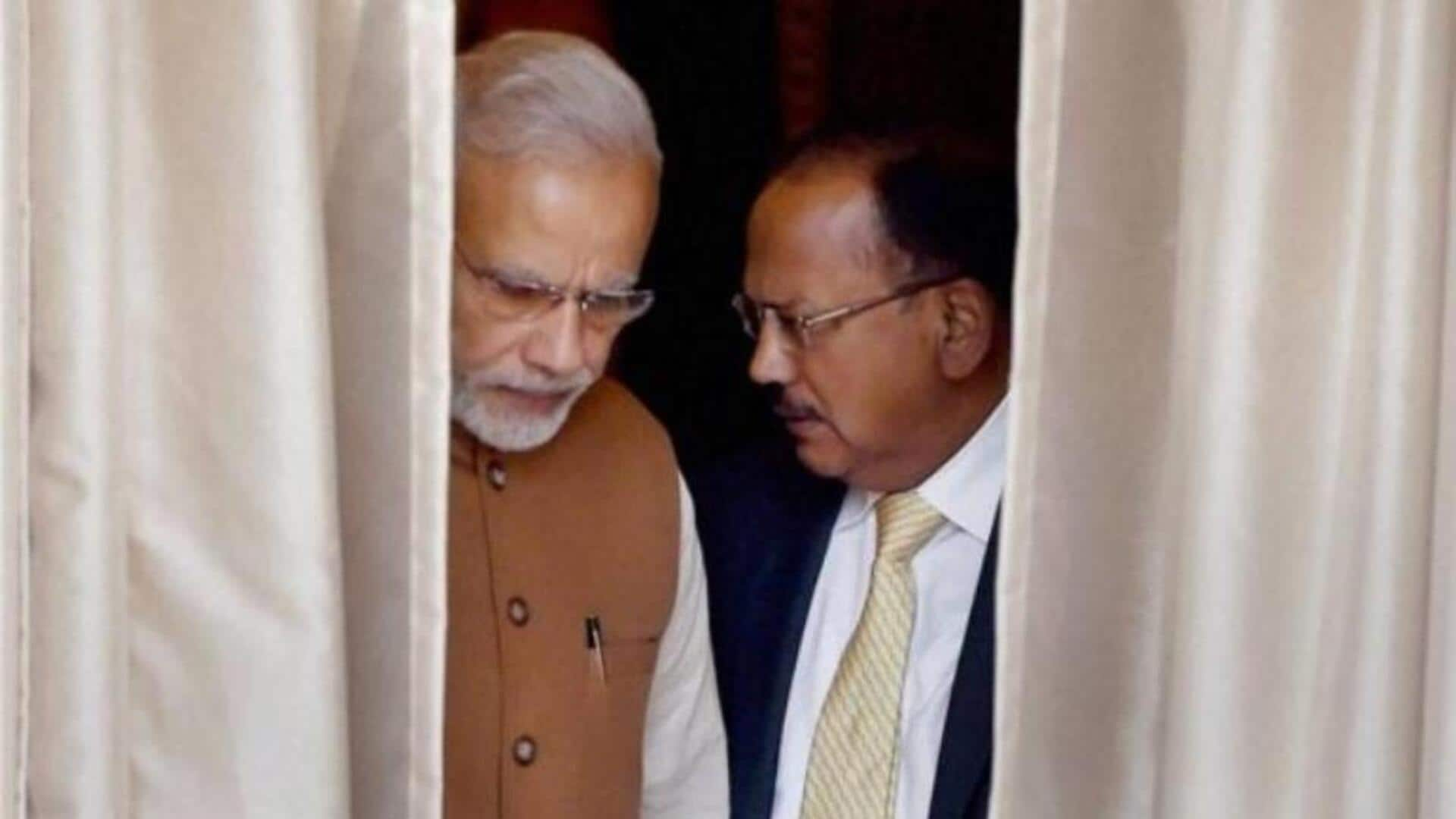
PM Modi, NSA Doval meet again to discuss security preparedness
What's the story
Prime Minister Narendra Modi held a meeting with National Security Advisor Ajit Doval on Tuesday to discuss the security situation. This comes amid rising tensions between India and Pakistan and speculation of a possible military response by India to the Pahalgam terror attack. The meeting is the second time in just 24 hours and comes just a day before state governments will conduct mock security drills—the first time since the 1971 war with Pakistan—on Wednesday.
High-level discussions
Modi's strategic meetings amid escalating tensions
PM Modi has held several high-level meetings with key defense officials in the last few days. These include Defense Minister Rajnath Singh, NSA Doval, Chief of Defense Staff General Anil Chauhan, and chiefs of the Army, Navy, and Air Force. The discussions have fueled speculation about potential military action against the Lashkar-e-Taiba terror group after the Pahalgam attack on April 22 that killed 26.
Military autonomy
Modi grants armed forces 'complete freedom' for response
In a meeting last week, PM Modi gave the armed forces "complete freedom to decide on the mode, targets and timing" of India's military response. This order comes after the Pahalgam attack—India's deadliest terrorist attack since the 2019 Pulwama attack that killed 40 soldiers. The Resistance Front, a known proxy of Pakistan-based Lashkar-e-Taiba, initially claimed responsibility for this latest attack before denying it.
Diplomatic tensions
India accuses Pakistan of involvement in Pahalgam attack
India has blamed the Pakistani deep state for planning the Pahalgam attack. The Pakistani government has denied involvement and called for an independent international investigation into India's claims. In the wake of the attack, India has taken several diplomatic measures, including revoking visas for Pakistani nationals and suspending the Indus Waters Treaty (IWT) after 65 years.
Water management
India halts IWT, begins new hydroelectric projects
Suspension of the IWT is a big deal as it affects almost 80% of farms in Pakistan that are dependent on the Indus and two of its tributaries for irrigation. The treaty had limited India from constructing further storage facilities that could completely cut off the supply to Pakistan. But now that the treaty is suspended, India has begun to increase storage, building new dams and launching more hydroelectric projects that could affect supply to Pakistan.